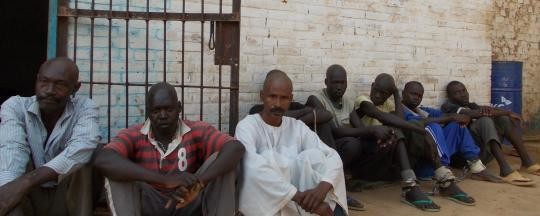More than 50 inmates at Wau Central Prison in Western Bahr el Ghazal State are suffering from skin diseases amid a growing shortage of medical supplies, prison officials said Thursday.
Speaking to Radio Tamazuj on Thursday, Maj. Gen. Andrea Masharanga, director of Wau Central Prison, said the prison is currently housing more than 1,000 inmates — including women and juveniles — who are all facing serious challenges related to medical care.
Masharanga attributed the outbreak to poor sanitary conditions inside the prison, including overflowing sewage and inadequate drainage systems.
“The prison currently holds 897 inmates in Wau alone. When you include the inmates in Thur-Majok and Raja, along with 11 recently convicted gang members, the total number rises to 1,007,” Masharanga said.
He said the facility’s latrines are full and urgently need sewage and drainage trucks, which the prison cannot afford due to financial constraints.
“We don’t have drainage trucks. There is an outbreak of skin disease — even I have it — and the number of affected inmates is increasing. Around 50 have been sent to Wau Teaching Hospital for treatment,” he added.
Masharanga expressed appreciation for ongoing support from the state Ministry of Health and Sikka Hadid Catholic Health Hospital, which have provided periodic medical assistance.
“If it weren’t for the Ministry of Health and Sikka Hadid Health Center, the inmates would be suffering even more,” he said.
Reacting to the situation, Stephen Robo Musa, the state coordinator for the Community Empowerment for Progress Organization (CEPO), said Wau Central Prison is one of the most neglected facilities in Western Bahr el Ghazal.
“A prison is meant to be a reformatory institution where inmates can rehabilitate and eventually return to society,” Musa said. “But poor conditions, including food shortages and overcrowding, contribute to unhygienic and unsafe environments.”
He urged the government to prioritize improving conditions at the prison, calling it not only a humanitarian issue but also a matter of public security.
“We call on the government to address these concerns urgently. If inmates do not receive proper care, the goal of rehabilitation becomes extremely difficult,” Musa said.




